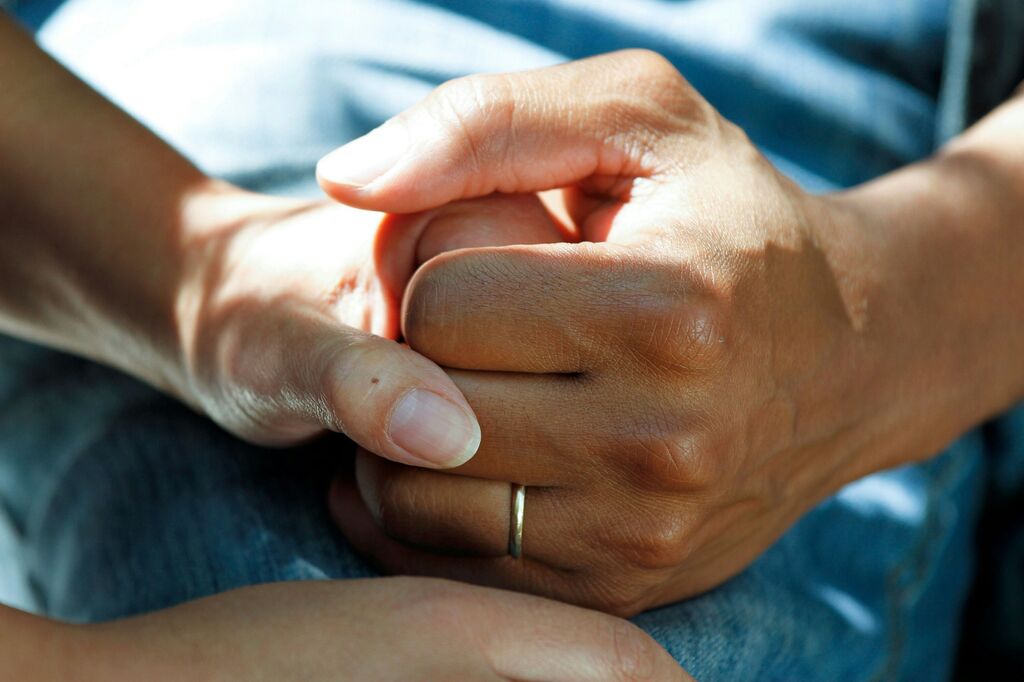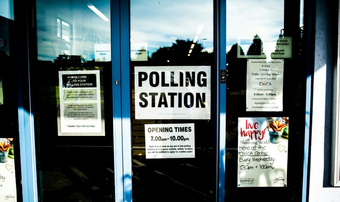Britain can do better than assisted suicide

TOMORROW, parliamentarians will consider legislation on ‘assisted dying’. Westminster’s decision on this issue will mark a profound change in how we as a society view life and the dignity, compassion, and protection we afford every person. Let me start by acknowledging that many who support Kim Leadbeater’s Bill do so with good intentions, motivated by deeply personal stories of people’s experiences at the end of life, and a desire to alleviate suffering. This is a deeply human quality that is shared by those of us who oppose this Bill as well.
This Christmas marks two years since my father died of cancer, and my overwhelming desire during his final months was to find ways to ease his pain. I am incredibly grateful that in his final weeks he received wonderful care from his local hospital and was, I believe, largely free from pain and suffering in his final days. And yet, it is still heartbreaking to think of the many days and hours that he was experiencing great difficulty. Far too many people in the UK do not have good enough end-of-life care, and it is important to bolster existing, life-affirming support.
Our lived experience is one lens through which MPs must view ‘assisted dying’, but it isn’t the only one. To appraise this issue fully requires looking at it through various lenses. Legislators need to be compassionate, but we do not want laws passed on the basis of emotion alone.
MPs must view this issue through a moral lens, asking if what’s proposed – doctors participating in patients’ suicides – is right, and beneficial for our society. As the CEO of a Christian charity, I approach this question with the deep conviction that all human life has intrinsic value and dignity, being made in God’s image. Christianity teaches that nothing in a person’s life, including illness, affects this. I also believe the state has a God-given duty to protect life, which includes preventing suicide.
The state has a God-given duty to protect life, which includes preventing suicide
Orthodox Christian teaching holds that assisted suicide is incompatible with a proper view of human dignity. It creates a two-tier society where some lives are seen as not worth living and afforded less protection than others. At CARE, we’d argue that the value a society ascribes to human life is diminished, not enhanced, by assisted suicide, as evidenced by troubling cases of disabled people and others overseas being encouraged towards assisted death due to their perceived lower quality of life. Whilst many MPs won’t share our Christian convictions, I hope they’ll see the validity of these concerns, and grapple with moral questions themselves.
In a Britain that is increasingly secularised, one deeply Christian instinct that has remained is the idea that vulnerable people deserve special protection. As the historian Tom Holland notes, this was certainly not the case in the Pagan societies that went before. MPs will approach the Bill with this instinct in mind, and there are real concerns that have not been answered. Even if MPs support assisted suicide in principle, it is not clear how any measure in the Bill would stop the coercion of vulnerable people, which is insidious and often missed. It’s also unclear how any legal ‘safeguard’ could prevent a person caving to internal pressure to end their lives because they feel like a burden on others.
Recognising the social context in which this debate is taking place is also vital. Whilst proponents of Kim Leadbeater’s Bill emphasised the rights of the individual to have agency over their own ‘choice’ at the end of life, it would be naive to conclude that any person would make truly informed and free ‘choice’ to end their lives. I am struck that often those most vociferous voices calling for ‘assisted dying’ legislation are privileged, affluent people who have choices and protections that many more in our country do not have.
CARE is among many charities warning that people’s decisions about ‘assisted death’ would be influenced by their experience of healthcare inequality, poverty, social isolation, and other factors. People across England and Wales would feel pressure to end their lives because their circumstances make continued living feel pointless. Are MPs content with this outcome?
The value a society ascribes to human life is diminished by assisted suicide
Parliamentarians should view this issue from a medical perspective. Campaigners state that ‘assisted dying’ offers a “dignified” death. However, clinicians stress its medical dangers. It results in serious complications, and people accessing it overseas have prolonged deaths – some take many hours. Doctors also aren’t sure if people experience suffering as they die, as drugs render people unable to move and speak.
Contrasted with palliative care, which safely meets a dying person’s physical, mental, and spiritual needs, assisted suicide feels like the opposite of good medical care. We know that palliative care is effective when it is properly resourced. We also know that it needs much greater investment. Shouldn’t this be our focus?
Whatever MP’ personal views on ‘assisted dying’ are, nobody can deny the real dangers that accompany a change in the law. A slew of concerning reports from other countries in recent months only serve to underline the prospect of negative outcomes in the UK should our law change. There is also little doubt that this is a one-way ticket. No country or state that has passed assisted dying legislation has seen it reversed – only liberalised further.
Parliament must oppose assisted suicide, as it has in the past. There is a wiser, and more humane, path forward. Bolstering palliative care. Preventing suicides. Giving people a good full life and death. And working for a society where every citizen feel valued and supported. I urge MPs to choose this path.
Ross Hendry is the CEO of Christian Action Research and Education (CARE)






